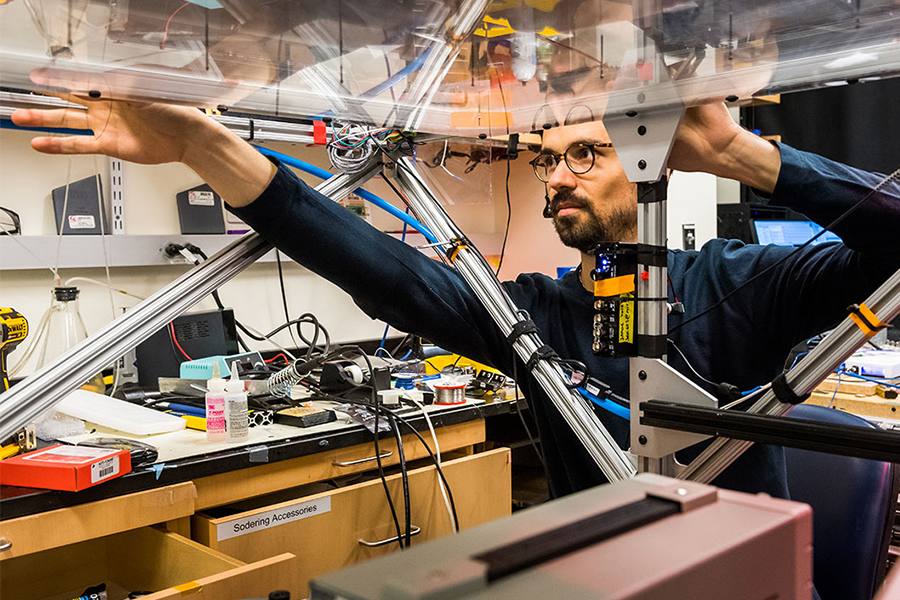Postdoctoral Research

Postdoc Jakob Voigts at work in the Harnett lab.
Postdoctoral fellows and associates are an important part of the Building 46 community, contributing to the depth and breadth of our work. The Department appoints postdoctoral researchers on the recommendation of a faculty sponsor. We typically have over 100 postdocs with active appointments within Building 46, which includes the Department of Brain and Cognitive Sciences, the McGovern Institute for Brain Research, and The Picower Institute for Learning and Memory.
Working alongside faculty who are experts in their fields, postdoctoral researchers hone their skills as scientists, teachers, and mentors. The interdisciplinary nature of our program exposes them to multiple areas of research, and prepares them to advance to tenure-track positions at major universities or to significant positions in industry.
Candidates interested in postdoctoral study in Building 46 should contact the appropriate faculty member directly or search for available positions via the MIT employment site. International candidates: please contact the BCS Human Resources Officer, Kim DeMayo, for information on immigration and visas.
Information for BCS Postdocs
Salary
Postdoctoral Fellows and Associates are appointed to conduct research projects in fulfillment of their postdoctoral training. Members of the postdoctoral staff may be appointed as fellows (whose support comes from an outside funding source) or associates (whose support comes from a grant or other source of MIT funds).
As of January 1, 2024, MIT the minimum annual postdoctoral associate stipend is $66,950.
Although stipends for postdoctoral fellows are governed by the funding agency providing the fellowship, the fellowship stipend will be supplemented if allowable under the terms of the fellowship.
Principal investigators may opt to pay a stipend above the minimum.
Postdoctoral Associates and Fellows are reviewed annually on the anniversary of their date of hire as a postdoc.
General Tax Information for Postdoctoral Scholars
Due to legal restrictions on our capacity to advise you about tax liabilities, Human Resources is not able to answer individual questions regarding your tax situation.
All taxpayers must file a tax “return” (form) each year with the Internal Revenue Service (IRS), the United States government agency which handles federal taxes, and may also be required to file with the state tax agencies. The United States tax system is based on a system of self-assessment. Therefore, it is the individual’s responsibility to understand the tax requirements.
Opportunities within the Building 46 community are available to postdocs (associates and fellows) who have an interest in gaining teaching experience.
The following are options for teaching:
- Design and teach your own course to be taught during IAP (January term)
- Participate in teaching undergraduate or graduate level subjects by giving one or two lectures in Course 9
- Participate in teaching undergraduate or graduate level subjects by leading a recitation section in Course 9
If you would like to participate in any of these teaching opportunities, please send your request to Sierra Vallin. Your request should include the following information:
- Graduate or undergraduate subjects(s) you are interested in
- Type of teaching (IAP course, 1-2 lectures, or leading a recitation section)
The decision about a postdoc’s eligibility to teach will be made on a case-by-case basis, and will consider a number of factors including permission from the PI, the postdoc’s visa status, the type of assistance needed by the course instructor, and individual fellowship requirements. Please keep in mind that postdocs will not receive any additional compensation for teaching as this is primarily a teaching opportunity, however we will coordinate with your advisor to make sure that your effort is distributed appropriately.

